在C#中有一个关键字checked,它用来判断当前上下文中的数值运算和数值转换是否会溢出。如是是常量溢出,那在编译时就能发现;如果是变量溢出,那在运行时会抛出OverflowException。
数值运算有:++ — - (unary) + - * /
有了这个就不用担心数据溢出了。
checked
checked 有两种使用方法:
1.作为操作符来使用
| int a = int.MinValue; int c = checked(a--); |
执行的时候会抛出异常:

2.检查一大块代码:
这样子会对里面所有的代码都做检查
| checked { int a = int.MinValue; int c = a--; } |
如下图:

unchecked
和checked对应,还有一个unchecked关键字,用来取消检查。
也是两种使用;
1.作为运算符:
int a = int.MinValue; int c = unchecked(a--); |
这样子就不会抛异常了
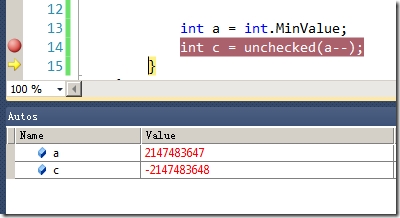
2.检查一大块代码
unchecked { int a = int.MinValue; int c = a--; } |
也不抛异常:
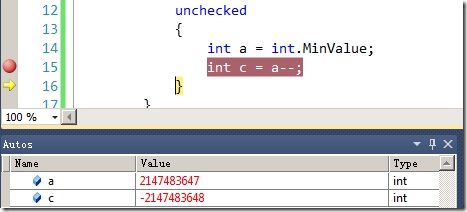
/checked 和/checked-
如果代码里总是要写这么多checked语句是不是很烦?如果能有一个编译参数就好,只有设置了就都会检查。微软也想到了这个,它提供了一个/checked 参数来做,也提供了一个/checked-来取消。
溢出检查 /checked,也可以是/checked+
溢出不检查 /checked-
当然,你想取消所有的检查也是可以的,命令行参数是/checked-
csc t2.cs /checked |
其中csc是编译器csc.exe , t2.cs 是被编译的代码文件。
我想很多人是用Visual Studio吧。VS里也是可以设置的。
步骤如下,我以VS2010为例,(VS2005,2008差不多)
1。在工程上点右键,选择菜单Properties
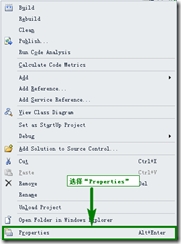
2。点击“Build”,再点击“Advanced”
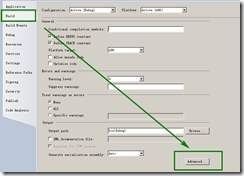
3。在打开的对话框中,把“Check for arithmetic overflow/underflow”打上勾
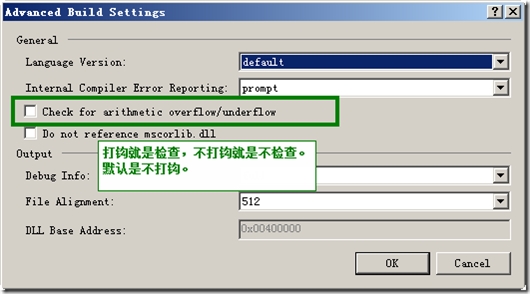
几个注意
1.checked语句只对当前上下文中的代码有效,即不对调用的函数内部做检查。
static void Main(string[] args) { checked { TestFun(); } } static void TestFun() { int a = int.MinValue; int c = a--; } |
这段代码中。不会跑异常,因为checked关键字没有影响到TestFun内部。如果需要这么做的话,要么在TestFun内部加checked关键字,要么打开全局开关(加编译参数/checked或者VS中设置)。
2.checked,unchecked关键字不检查左移和右移是否溢出。
static void Main(string[] args) { checked { int a = int.MinValue; int c = a>>1; } } |
执行不会抛异常:
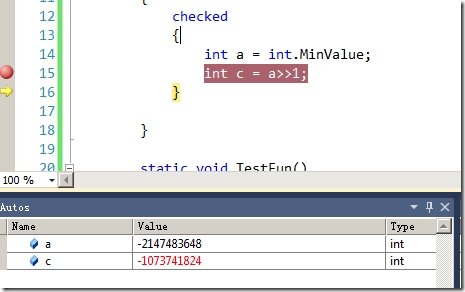
3.为了性能考虑,建议Debug时做检查,Release时不做检查。
参考资料
/checked (Check Integer Arithmetic)
http://msdn.microsoft.com/en-us/library/h25wtyxf(v=VS.71).aspx
Arithmetic Overflow Checking using checked/unchecked
http://www.codeproject.com/KB/cs/overflow_checking.aspx
